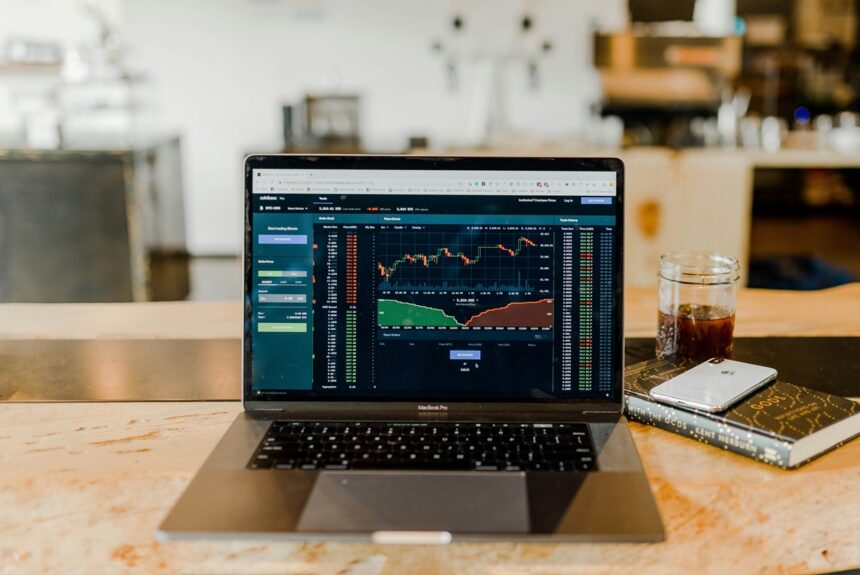People who wish to understand investment trading and finance must learn more about financial instruments as their initial step. People who explore financial markets at any experience level need to understand how different instruments work, their operational mechanics, and their impact on worldwide economic systems and local markets. Through financial instruments, investors can diversify portfolios, control risk exposure, and obtain opportunities for asset growth. This article examines different financial instruments alongside their applications and significance, with special attention paid to how Octa, a reliable Nigerian broker, combines worldwide market access with domestic convenience.
What Are Financial Instruments?
The fundamental definition of a financial instrument is that it is an asset with a market value that users can exchange. The legal document serves as an agreement between parties to conduct investments while protecting against risks or speculative activities. Financial instruments exist in two fundamental groups: debt-based instruments and equity-based instruments.
Equity-Based Instruments
Equity-based instruments represent ownership of a certain company. Shares allow investors to claim a share (hence the name) of the company’s assets and profits. Buying shares unlocks the potential of growth that depends on increasing the company’s value through capital gains.
Debt-Based Instruments
The borrowing relationship expressed through bonds or loans constitutes debt-based instruments. The bond investment process involves providing financial support to entities, including governments and corporations, in exchange for interest payments during a certain time frame. These investment instruments provide relatively lower risk than equity instruments and deliver reduced financial returns.
Financial instruments also include derivatives. Their value depends on an underlying asset or a certain benchmark.
The Octa website official offers users access to a wide range of investment options, providing both global market opportunities and regional tools designed for the effective management of financial assets.
Types of Financial Instruments
Different investors, including individual traders and large institutional players, require financial instruments that come in a wide range of formats to meet their specific needs. Multiple financial instruments exist in different categories, as demonstrated below.
1. Stocks and Shares
Equity instruments of this category remain the most widespread among financial instruments. Stock purchases grant investors ownership shares in business operations by purchasing company stocks or shares. Your investment grows when the company performs well, while dividends can be received from the company’s profits.
2. Bonds
Debt instruments known as bonds come from both public sector entities like governments and private sector entities like corporations. By purchasing a bond you provide financial support to the issuer who will pay periodic interest until the bond matures. Bonds are a good investment option for people who want dependable earnings and reduced risk exposure.
3. Options and Futures
Instruments like options and futures are called derivatives because they derive value from another underlying asset, including stocks or commodities. An option allows you to buy or sell an asset within a specific timeframe at an already established price. Trading futures contracts require parties to set an asset purchase or sale agreement that establishes current prices for future delivery dates.
4. Commodities
Physical commodities, including gold and oil, together with agricultural products, make up tradable assets. Investors choose commodities because these assets help them spread their investments and protect against inflation and market downturns.
5. Currencies (Forex)
The foreign exchange (Forex) market stands as the world’s biggest financial market that operates with exceptional liquidity. The currency pairs in Forex trading consist of two components while traders decide to purchase or sell these pairs based on market fluctuations. Forex trading is quite risky but can bring significant financial gains.
Instruments Used in Money Markets
Short-term borrowing and lending activities occur within the money market segment, which operates primarily at intervals of less than one year. The economy needs this market segment to sustain its liquidity levels. The main financial tools employed in the money market include:
1. Treasury Bills (T-Bills)
The government depends on T-Bills as a fast method to obtain financing for its temporary financial requirements. T-Bills maintain a very low risk level because they receive backing from the government. Investors obtain their returns from these instruments by purchasing them at discounted prices while they reach maturity at full value.
2. Certificates of Deposit (CDs)
Banks distribute CDs as time deposits that provide fixed-term interest payments. The interest rates on CDs exceed savings account rates, but investors must keep their funds inaccessible throughout the predetermined term.
3. Repurchase Agreements (Repos)
The agreement in repos allows parties to sell securities to each other with an understanding of repurchasing these assets within 1-2 days. Financial institutions rely on repos to handle their urgent requirements for cash flow.
4. Commercial Paper
Corporations use commercial paper notes to obtain funding for their day-to-day operational costs, including payroll and inventory expenses. Commercial paper yields higher than government-backed instruments while being slightly riskier than them.
The Role of Financial Instruments in Local and Global Markets
The economy relies heavily on financial instruments because they enable organizations, governments, and individuals to obtain capital while managing risks and seizing investment possibilities. The trustworthiness of Octa broker stems from its capability to unite worldwide access with robust local representation.
Global Reach
The worldwide financial instrument market spans multiple countries through exchanges and trading platforms operating across various currency systems. Stocks, bonds, and derivatives form global markets where investors can build diverse investment portfolios while protecting their assets from multiple market risks. Financial instruments operate globally, which generates higher market liquidity because trading activities can happen at any moment and across multiple geographic areas.
Local Accessibility
The trustworthy broker Octa maintains close relations with its clients through its dedication to staying nearby, especially in countries like Nigeria, which need local expertise and support. The major benefit of Octa includes its service of offering local currency trading in Nigerian naira combined with international market access. The blend of worldwide market access with regional market understanding enables Octa to develop a balanced investment strategy that builds trust between investors.
Navigating Your Financial Future with the Right Instruments
Financial activities need financial instruments to function as vital tools that serve investors who wish to invest and need risk management or capital funding. Investors use such financial instruments as stocks, bonds, and commodities to create portfolios that align with their financial goals and risk tolerance levels. Local and global trading happens on Octa’s trusted platform, which enables clients to trade multiple instruments with personalized support to meet their requirements. Your financial success depends on knowing how financial instruments function because this knowledge leads to better decision-making power.
WATCH TOP VIDEOS FROM NIGERIAN TRIBUNE TV
- Let’s Talk About SELF-AWARENESS
- Is Your Confidence Mistaken for Pride? Let’s talk about it
- Is Etiquette About Perfection…Or Just Not Being Rude?
- Top Psychologist Reveal 3 Signs You’re Struggling With Imposter Syndrome
- Do You Pick Up Work-Related Calls at Midnight or Never? Let’s Talk About Boundaries







